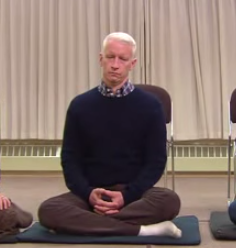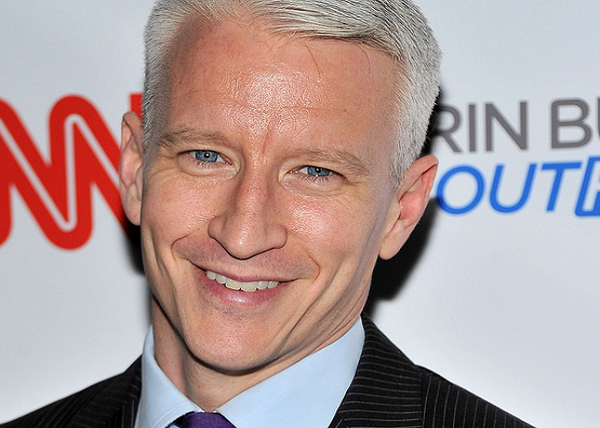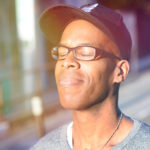Anderson Cooper is a darling of the American media, known for his compassion in covering tragic stories and now known for his daily mindfulness meditation.
Anderson Cooper is a household name in America. He has redefined the model for an anchorperson in the news industry by having the courage to break away from the mold of the omniscient, stoic anchor and deliver his brand of journalism with passion and, dare say it, personality. He embraces what he does not know as well as what he does, and he has endeared himself to his audience simply by being himself while many in the media present a persona.
Cooper has co-anchored such high profile shows as NewsNight and World News Now. He has covered a number of world conflicts including the Bosnian War, the Rwandan Genocide and the Cedar Revolution in Lebanon; and he has been awarded for his coverage of the tsunami damage in Sri Lanka, the earthquake in Haiti and Hurricane Katrina.
He is probably best known for hosting Anderson Cooper 360° and being a regular correspondent on 60 Minutes, but what many people don’t know about Cooper is he suffered a personal tragedy that motivated him to capture the types of heartbreaking and inspirational stories that have become the highlights of his journalistic résumé.
When Cooper was only 21 years old, his older brother committed suicide by jumping out of the 14th floor window of their mother’s apartment building. In an article by Jonathan Van Meter of New York magazine, Cooper was quoted as saying:
“Loss is a theme that I think a lot about, and it’s something in my work that I dwell on. I think when you experience any kind of loss, especially the kind I did, you have questions about survival: Why do some people thrive in situations that others can’t tolerate? Would I be able to survive and get on in the world on my own?”
Perhaps Cooper’s fascination with the nature of survival has been a catalyst in his recently found appreciation of mindfulness. On December 14th of 2014, Cooper delivered a report on mindfulness in America for 60 Minutes where he discussed the growing trend in our country and interviewed renowned practitioner of mindfulness meditation, Dr. Jon Kabat-Zinn.
As part of his research for the story, Cooper attended a weekend retreat to learn mindfulness practices from Kabat-Zinn. The weekend consisted of three major activities: sitting meditation (guided by Kabat-Zinn), eating in silence and walking meditation (walking back and forth slowly while focusing on every sensation that your feet and body experience).
In a segment called 60 Minutes Overtime, Cooper was interviewed and spoke candidly about his personal experience at the retreat. He admitted to being respectfully skeptical of meditation prior to trying it and unhappy about having to surrender his cell phone at the beginning of the weekend.
Cooper’s hesitation toward being unplugged for a couple of days seems fitting for a news man who regularly checks his email via his mobile device, but it contradicts a frame of mind he was in 15 years ago when he stepped away from journalism for a year. He had been anchoring ABC newscasts overnight, working at 20/20 during his days and sleeping very little, and he made a conscious decision to leave that stress and clear his head.
Cooper might look back at that decision as a moment of clarity, but like any person who is in love with his or her craft, he returned to it passionately, pulled a bit by the attack on the World Trade Center in 2001, and he inevitably fell back into a routine of perpetual availability and reliance on mobile devices that accompanied his success.
At the meditation retreat, however, he gave up his cell phone, and he engaged in mindfulness practices with an open mind and without exterior distractions. The mind, after all, tends to create plenty of its own distractions to overcome, especially during one’s first few meditation sessions; and despite Cooper’s initial skepticism, he discovered he enjoyed meditative states in each of the forms practiced during the weekend.
 Since the retreat, Cooper has continued to meditate regularly, and he is most taken with the idea that it is a way to separate one’s self from one’s thoughts (or inner narrative) for, at least, a short time. He cites Kabat-Zinn’s analogy of the thought process being like waves in the ocean and meditation being akin to diving under the waves, for a moment, to experience the serenity that lies beneath.
Since the retreat, Cooper has continued to meditate regularly, and he is most taken with the idea that it is a way to separate one’s self from one’s thoughts (or inner narrative) for, at least, a short time. He cites Kabat-Zinn’s analogy of the thought process being like waves in the ocean and meditation being akin to diving under the waves, for a moment, to experience the serenity that lies beneath.
Such a moment of being present without the judgments and stresses of the mental narrative is a true moment of living, in Cooper’s opinion. By focusing his mental process on his breath during mediation (as a practice, returning to his breath stuck with him), he has gained the ability to simply reflect on his existence and have time that is void of agitation.
During his interview with 60 Minutes Overtime, Cooper said, “One of the things that Jon Kabat-Zinn talks about is that everyone wants to figure out how to live longer, but this actually is a very easy way for you to live longer. Maybe you’re not extending your life, but you are present and living more of the moments of your life.” In his own words, he expressed that mindfulness meditation is not just some story he has covered. It is a practice that he finds benefit in, has begun to believe in and is informing others about.
In response, Cooper’s interviewer suggested what he meant was that it seems you’re living longer, and Cooper replied, “You are living longer. You are living.“
In a way that only he can, Anderson Cooper finished his interview with a quote that poked fun at his early skepticism but sincerely expressed how the constantly busy and perpetually forward-looking journalist has embraced a new way of slowing down his life. “Again, this sounds like a cult. It sounds like I’ve sort of drunk the Kool-Aid, but I’ve sort of drunk the Kool-Aid.”
Humor aside, Cooper has happily stated that meditation is something that he needed and that it has changed his life for the better.
[images: via Bernard Bujold on flickr & 60 Minutes interview on youtube]











